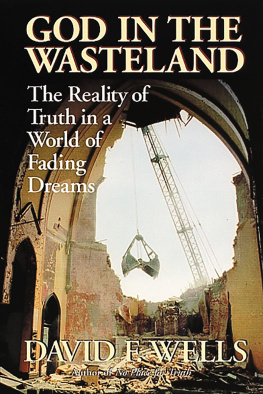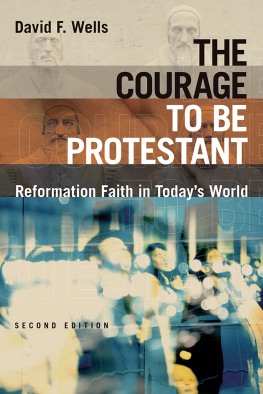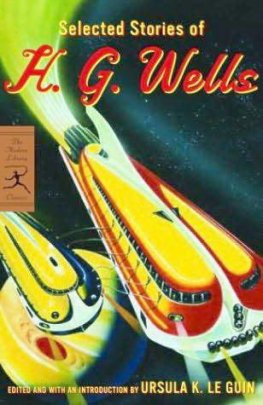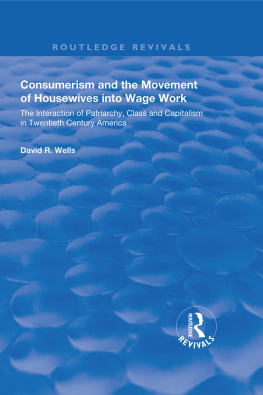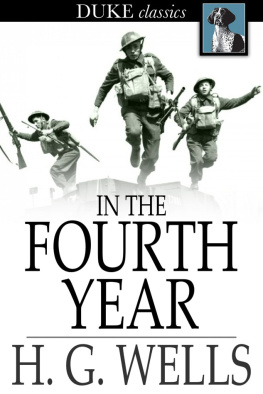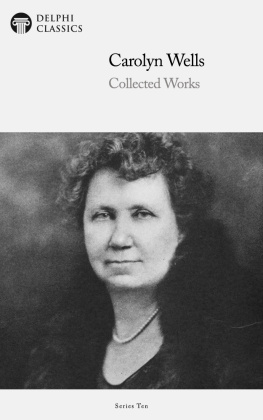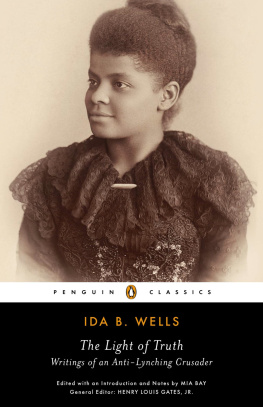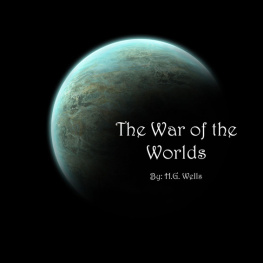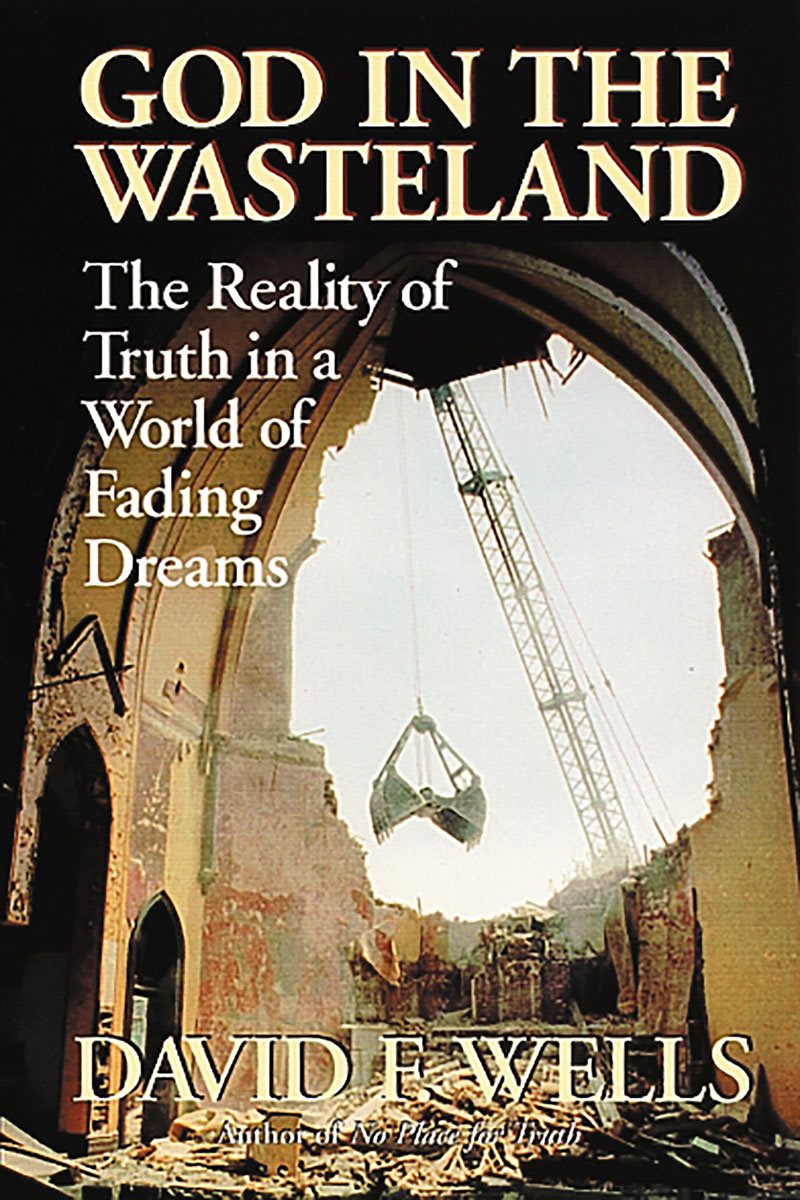

1994 Wm. B. Eerdmans Publishing Co.
All rights reserved
Wm. B. Eerdmans Publishing Co.
2140 Oak Industrial Drive N.E., Grand Rapids, Michigan 49505 /
P.O. Box 163, Cambridge CB3 9PU U.K.
www.eerdmans.com
Printed in the United States of America
19 18 17 16 15 14 15 14 13 12 11 10
Library of Congress Cataloging-in-Publication Data
Wells, David F.
God in the wasteland: the reality of truth in a world of fading dreams / David F. Wells
p. cm.
Includes bibliographical references and index.
ISBN 978-0-8028-4179-7
1. Evangelicalism United States History 20th century. 2. Christiantity and culture. 3. Theology 20th century. I. Title.
BR1642.U5W44 1994
230.046 dc20 94-18850
CIP
Unless otherwise noted, the Scripture quotations in this publication are from the Revised Standard Version of the Bible, copyrighted 1946, 1952 1971, 1973 by the Division of Christian Education of the National Council of Churches of Christ in the U.S.A., and used by permission.

Contents
To
Jonathan and JoAnna,
and
David and Lynne,
with much love

Preface
In 1989, I was the recipient of a significant grant from the Pew Charitable Trusts that enabled me to write No Place for Truth; or, Whatever Happened to Evangelical Theology? This book produced only half the picture I wanted to present, however. It offers an explanation of the cultural factors that have diminished the place and importance of theology in the church, but it offers no suggestions for a remedy of the problem. I am grateful, therefore, for the opportunity afforded me through a sabbatical to begin developing the other half of the picture in this book. Here I outline the first step that I believe needs to be taken to reverse the situation I described in the first book.
My absence from Gordon-Conwell Theological Seminary during this time has meant that some of my colleagues have had to assume some of my responsibilities, and I am grateful to them for their help and the generous spirit with which they have provided it.
Seminary), and Dennis Gaines (Talbot School of Theology). It has been a pleasure to work with Rodger Rice on this project, and I am much in debt to him for his considerable sociological expertise.
The report that resulted from this survey was, unfortunately, too long to be used in toto. Moreover, it was also written in a form that had to be adapted a little to meet the needs of the intended audience of this book. I felt, however, that the results were so significant (this may be the most extensive and searching analysis ever made of the views of evangelical seminarians) that I have included the statistical tables in an appendix. This will at least make this work available for those who may wish to use it or build on it without burdening those for whom the material is of less interest.
While the work was being done on this survey, I was able to obtain from James Hunter the raw data from a survey he made of seminarians in 1982. This proved most valuable to us because it enabled us to run a series of comparisons. I am most grateful to him for his willingness to make this material available to us.
I sent out much of the material in this book to various friends and colleagues for evaluation. Naturally, they are to be exonerated from all blame for what follows, but I do wish to thank Greg Beale, Jack Davis, David Gordon, Os Guinness, Scott Hafemann, Walter Kaiser, and John Seel for their careful and conscientious responses. I am also grateful to Margaret Manning, my student assistant, who helped me in checking parts of the manuscript.
The very day that the manuscript of this book was being sent off to the publisher, I received a copy of Colin Guntons The One, the Three, and the Many: God, Creation and the Culture of Modernity, which I had ordered. It was, of course, too late to profit from his book, which contains the Bampton Lectures of 1992. He traverses much the same territory as I have here, though he does so from a more philosophical angle. Nevertheless, we appear to share many views, and I regret that I was unable to read his work before the completion of my own.
Finally, I wish to express my appreciation for those who are still serious readers in America. Without them, I and many others would be silenced. The time and attention they give to their reading flies in the face of the habits that modernity inculcates so insiduously. And so, I wish to salute their stubborn resistance to modernity! Against all the odds, may their number increase, and may the church, in consequence, once again become a place where life is given its most serious and searching analysis.

PROLOGUE
CHAPTER 1
An Accident in History
Modern man is afflicted with a permanent identity crisis, a condition conducive to considerable nervousness.
Peter Berger
The modern world artfully simplifies, sometimes inadvertently. I was reminded of this yesterday when I unexpectedly encountered the theme of this book in bold, simple letters, right before my eyes.
I was driving down a quiet lane not far from my house. The beauty of the setting was striking. The tall, leafy trees reached over the road, forming a natural cathedral. So thick and luscious was this summer finery that only the thinnest slivers of light were able to pierce through the overhead canopy. A few horses were out romping in a field the grassy mounds of which, bright with sunshine, eventually sloped down to a river. The quietness and magnificence of this pastoral scene was broken only by some crows in irritated contention over the remnants of a small animal that had, in the night, fallen prey to a passing motorist.
Without warning, a white pickup truck suddenly pulled out into the road ahead of me. I had to brake hard to avoid a collision. Now, Boston drivers never take an affront like that lightly, because they have learned from long experience that these infringements on decency and order are never inadvertent. In other places they may be accidentalperhaps they often arebut in Boston they are all calculated insults. The only question that remains is what to do about them.
As this old truck jerked into motion ahead of me, I noticed the two messages on its rear bumper. The one on the left declared for McGuire, a local politician, in bold letters, and the one on the right declared for Jesus in equally bold letters. But there were additional letters, much smaller, above and below both these names. I was more than a little interested to know exactly what message this kind of driver would sport, so I accelerated to get within reading distance of the truck. My intention, I assure you, was completely innocent. But this driver, no doubt hardened by the routine combat of manners and vehicles that passes for traffic in and around Boston, looked alarmed, and, perhaps suspecting some form of retaliation, spurted forward. A dark cloud of smoke belched from the truck, signaling the drivers move to make a getaway. Not to be outdone, I accelerated with him. He pushed on even faster, a sense of imminent retribution no doubt inspiring his flight. By now we were both well above the speed limitby no means without risk on this lane, since the local gendarmes are notorious for being entirely without compassion. I could see his darting glances in the rear view mirror as I matched each forward lurch of his truck with a spurt of my own, acceleration for acceleration. All I wanted to do was read his bumper stickers, but he was having none of it. He escaped.
Next page
